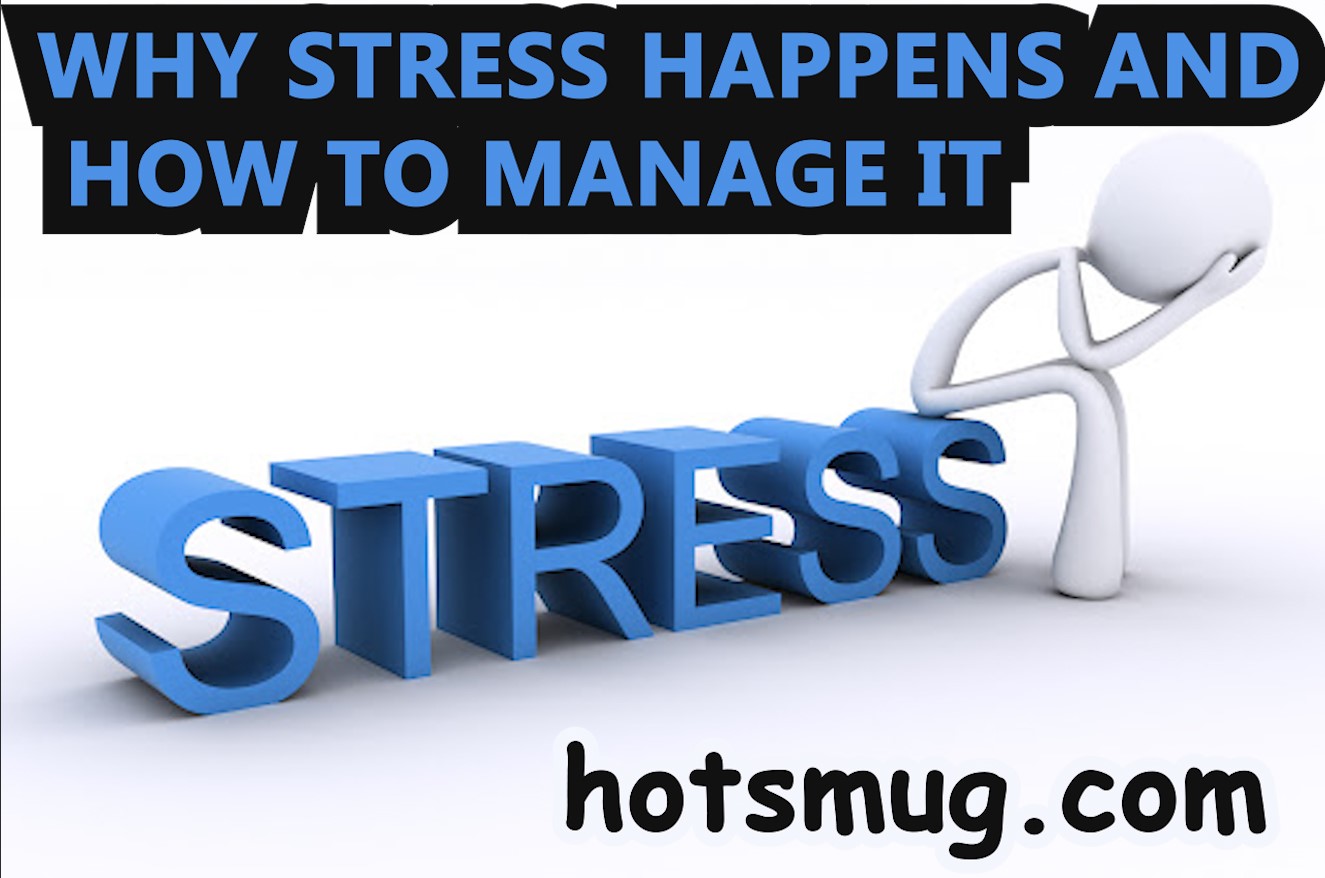Stress is unavoidable in modern life, but it doesn’t have to get you down. Work, money and family all create daily stress, while bigger issues like the global pandemic and politics contribute to our underlying stress levels. But approach it the right way, and it won’t rule your life — it can even be good for you. Here are ways to deal with stress, reduce its harm and even use your daily stress to make you stronger.
What is Stress?
Stress might seem like a bad thing, but that’s not always the case. The stress response (fight or flight) is natural: It helps our bodies gear up for action—like avoiding an oncoming bus or meeting a tight deadline. When we feel threatened, our body releases hormones like adrenaline and cortisol that can boost mental clarity, tighten muscles, and accelerate the heart rate.
Stress that helps you stay more alert is known as acute stress—this type of stress comes and goes—and we all have it from time to time. It doesn’t last long-term.
But for some people, the stress goes on for a long time. The body still reacts to it in the same way—as if bracing for potential danger—but that danger never comes. It keeps you in a constant state of vigilance, even when it doesn’t have to do so.
This is known as chronic stress, and it’s not healthy.
Causes of stress
Some typical causes of acute or chronic stress include:
- living through a natural or manmade disaster
- living with chronic illness
- surviving a life-threatening accident or illness
- being the victim of a crime
- experiencing familial stressors such as:
- an abusive relationship
- an unhappy marriage
- prolonged divorce proceedings
- child custody issues
- caregiving for a loved one with a chronic illness like dementia
- living in poverty or being homeless
- working in a dangerous profession
- having little work-life balance, working long hours, or having a job you hate
- military deployment
There’s no end to the things that can cause a person stress because they’re as varied as people are.
Whatever the cause, the effect on the body can be serious if left unmanaged.
When Does Stress Become Chronic?
Stress that lasts for weeks or months indicate chronic stress.
Chronic stress can impact your overall health. One risk is high blood pressure, also known as hypertension. For example, studies have shown that chronic stress is associated with a hypertension (or high blood pressure). Furthermore, some risks can snowball into others: Hypertension, for example, can raise your risk for other health problems, such as heart attack or stroke.
Similarly, the hormone cortisol—which gets released during chronic stress—may also lead to cravings of sweets and fats. As we all know, unhealthy eating can also raise your risk for obesity or other chronic diseases.
But the consequences of chronic stress don’t stop with the physical effects. Stress can affect your emotional or mental health too—not just making you more prone to nervous or anxious feelings, but also more depressed. Recently, the American Medical Association acknowledged how anxiety and depression can be connected, as well as how the isolation of COVID-19 may exacerbate problems.
Identifying Stress
Stress is not always easy to recognize, but there are some ways to identify some signs that you might be experiencing too much pressure. Sometimes stress can come from an obvious source, but sometimes even small daily stresses from work, school, family, and friends can take a toll on your mind and body.
If you think stress might be affecting you, there are a few things you can watch for:
- Psychological signs such as difficulty concentrating, worrying, anxiety, and trouble remembering
- Emotional signs such as being angry, irritated, moody, or frustrated
- Physical signs such as high blood pressure, changes in weight, frequent colds or infections, and changes in the menstrual cycle and libido
- Behavioral signs such as poor self-care, not having time for the things you enjoy, or relying on drugs and alcohol to cope
How can you help yourself?
If you’re feeling stressed, there are some things you can try to feel less tense and overwhelmed.
1. Recognise when stress is a problem
It’s important to connect the physical and emotional signs you’re experiencing to the pressures you are faced with. Don’t ignore physical warning signs such as tense muscles, tiredness, headaches or migraines.
Think about what’s causing your stress. Sort them into issues with a practical solution, things that will get better with time and things you can’t do anything about. Take control by taking small steps towards the things you can improve.
Make a plan to address the things that you can. This might involve setting yourself realistic expectations and prioritising essential commitments. If you feel overwhelmed, ask for help and say no to things you can’t take on.
2. Think about where you can make changes
Are you taking on too much? Could you hand over some things to someone else? Can you do things in a more leisurely way? You may need to prioritise things and reorganise your life so you’re not trying to do everything at once.
3. Build supportive relationships
Find close friends or family who can offer help and practical advice can support you in managing stress. Joining a club or a course can help to expand your social network and encourage you to do something different. Activities like volunteering can change your perspective and have a beneficial impact on your mood.
4. Eat healthily
A healthy diet can improve your mood. Getting enough nutrients (including essential vitamins and minerals) and water can help your mental wellbeing.
5. Be aware of your smoking and drinking
Cut down or cut out smoking and drinking if you can. They may seem to reduce tension but actually make problems worse. Alcohol and caffeine can increase feelings of anxiety.
6. Get some exercise
Physical exercise can help manage the effects of stress by producing endorphins that boost your mood. It can be hard to motivate yourself if you’re stressed, but even a little bit of activity can make a difference. For example, you could aim to walk for 15-20 minutes three times a week.
7. Take time out
Take time to relax and practice self-care, where you do positive things for yourself. For instance, you could listen to our podcasts about relaxation to calm your body and mind. Striking a balance between responsibility to others and responsibility to yourself is vital in reducing stress levels.
8. Be mindful
Mindfulness meditation can be practiced anywhere at any time. Research has suggested it can be helpful for managing and reducing the effect of stress and anxiety.
9. Get some restful sleep
If you’re having difficulty sleeping, you can try to reduce the amount of caffeine you consume and avoid too much screen time before bed. Write down a to do list for the next day to help you prioritise, but make sure you put it aside before bed.
10. Be kind to yourself
Try to keep things in perspective and don’t be too hard on yourself. Look for things in your life that are positive and write down things that make you feel grateful.
When to see your doctor
Below is a list of symptoms you may encounter when you’re feeling stressed. If you’ve tried the tips above and feel that you still need help managing your stress, visit your family doctor.
Typical signs of stress
- anxiety
- back pain
- constipation or diarrhea
- depression
- fatigue
- headaches
- high blood pressure
- trouble sleeping or insomnia
- problems with relationships
- shortness of breath
- stiff neck or jaw
- upset stomach
- weight gain or loss




